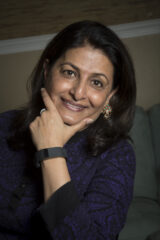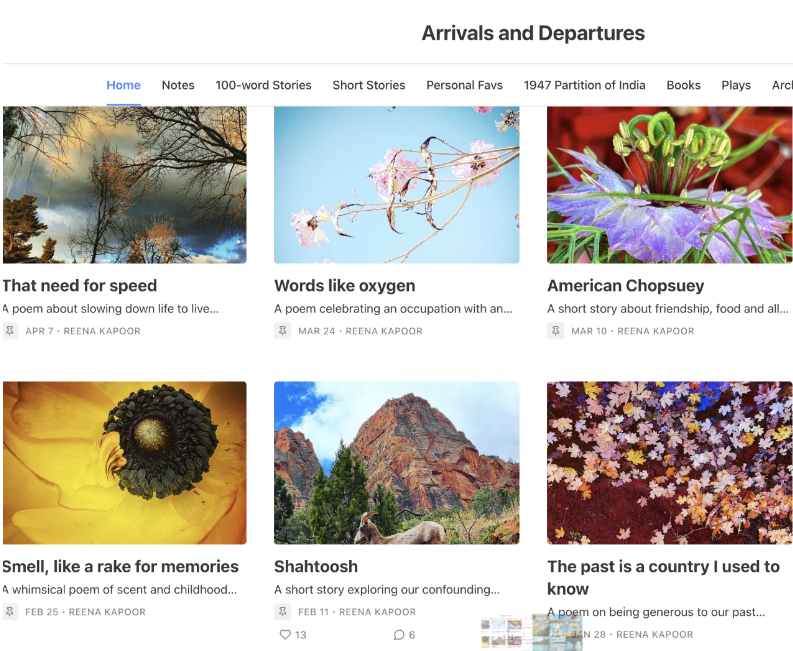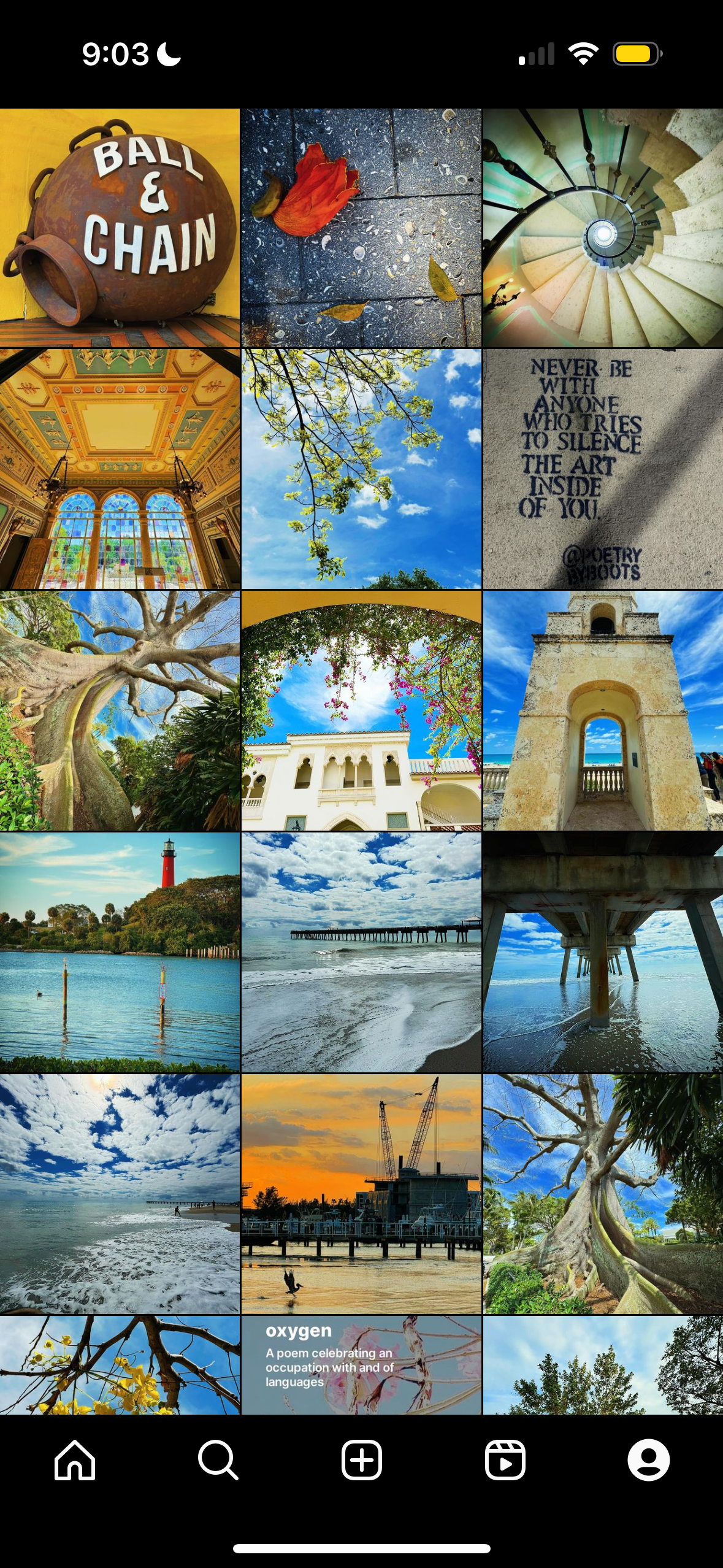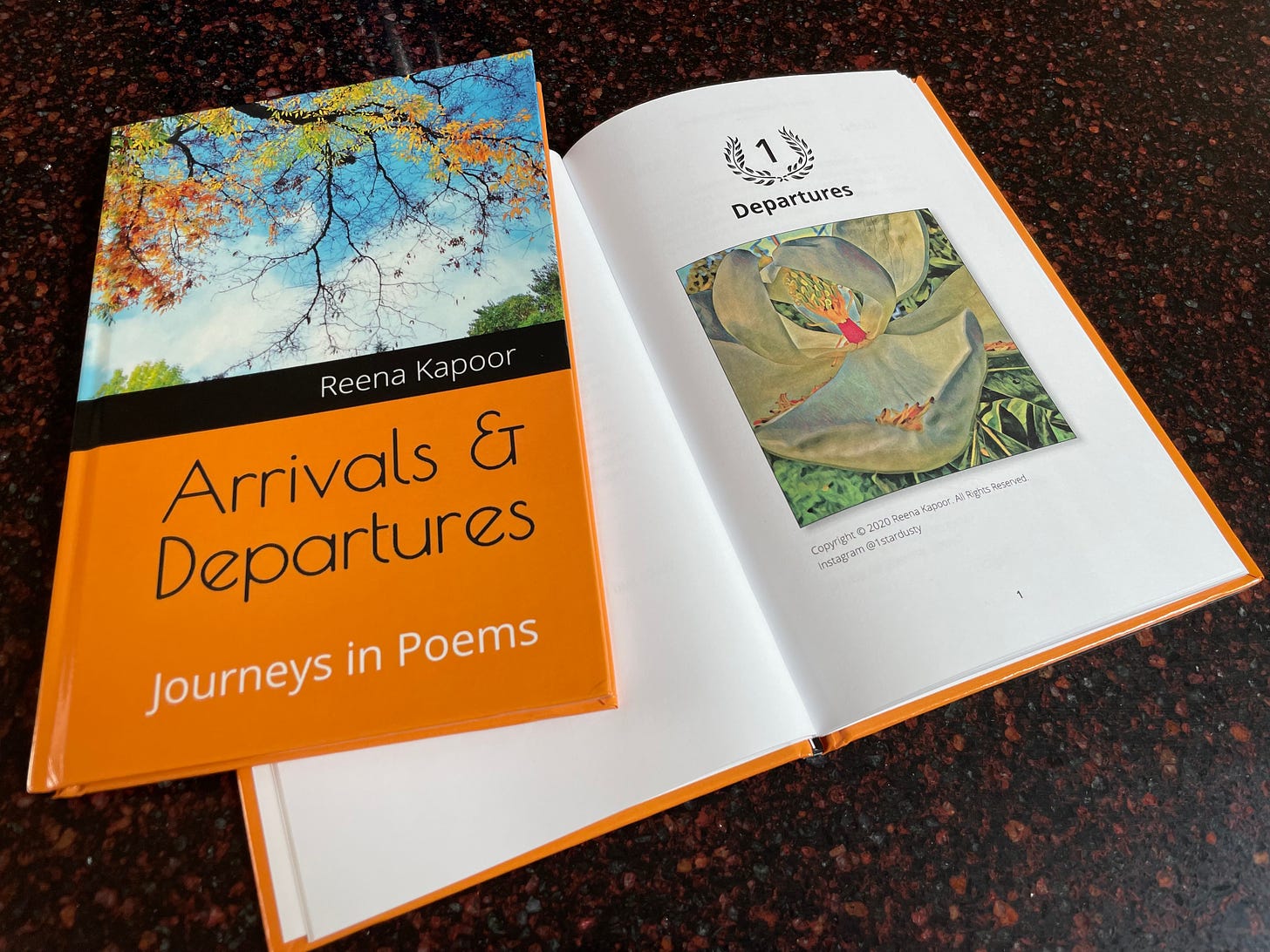
Tell us a little about yourself in regards to your background.
(RK): I was born and raised all over India because my father was a doctor in the Indian Army. I studied in eight schools all over India and I think that made me an observer of people and places and also a believer in the universality of human nature. We are more alike than we think or like to believe!
After high school, I went to engineering college at the Indian Institute of Technology which is one of the most competitive engineering schools in India. In the ’80s there were very few women in that field, and in my class of nearly 300 men, there were only two women!
Following that, I came to the US for graduate school in the late ‘80s and got an MS in engineering at Northwestern University. After that followed work as an engineer for a while, and then I switched over to business and tech, which is where I’ve spent the last 25+ years. I’ve worked at many companies big and small and I’ve also mentored a lot of start-ups and their founders, especially several social impact driven companies. That’s something I continue to do as an executive mentor.
Theatre, writing, reading, books and poetry have been my constant companions along the way. But then in the last couple of years I decided to get serious about writing, and have turned my attention to it more intentionally, and in some ways, more formally. So in some ways I’m on to writing as my third career!
How did you get started in your writing journey? Why did you decide to change careers from an engineer to a writer?
(RK): I’ve always written here and there, articles and essays in school, college and at work, which was more business writing of course. I’ve always loved words and expressing myself through them. And I read a lot as a kid and never really stopped. Reading is my primary mode of learning. I read a wide variety—everything from novels to short stories to works of psychology, philosophy etc.
And I’d been working for over three decades in engineering, business and tech and somewhere along the way about twelve years ago, out of nowhere poetry came spilling out of me! I’d never written poems in any serious way before that. It was as if the poems were waiting for an escape, for a chance, for a crack in my “busyness” to force my hand and my mind into paying deeper attention.
Being of a strong analytical mind, and having spent most of my career in analytically inclined careers, I found myself at a strange crossroads. When this inner push to write wouldn’t be tamed I had to face it. There was the default path ahead, which I could walk pretty easily and was the sensible thing to do, in terms of both financial benefit and external glory, and there was this thing which wouldn’t let go. For a while I thought I could do both. And I did. But I started to see that I’d lost the taste for a corporate career and its laurels were no longer making me happy. I didn’t feel burnt out, it wasn’t exhaustion, instead I felt a thirst for something else entirely. I would be in meetings daydreaming, wanting to pen down what couldn’t wait. Most of my poetry from 2010-2021 came out that way. After a decade of pretending I could “do it all” I woke up one morning and decided to stop. It took a bit more time to wrap up loose ends but I gave myself permission for this left turn.
So here I am now. It took me a bit of time and getting used to, to claim that I’m a writer without any compunction or this feeling that I was asking for permission. I didn’t realize how much I love the act of writing itself and also the learning, this drinking from a firehose that I get to do daily. I feel like a student again, and it’s a wonderful feeling. I regularly publish my poetry and stories and essays on my blog https://arrivalsanddepartures.substack.com/. That’s also the name of my first poetry book. I’ve also been published in various anthologies and literary magazines and journals, so I’ve had a teeny bit of exposure. 
My main focus though for now is to learn how to be a better writer, and I’m continually pushing myself on that path, taking classes, learning from other writers in critique groups and writing clubs, and also just reading up to hone and refine my craft. It’s a wonderful journey and a privilege to allow for this passion.
How did you find the WNBA?
(RK): I initially discovered the WNBA while searching for organizations for writers on the internet. But then a writer friend who I met through an online literary event during Covid, Anniqua Rana, who’s on the board of the San Francisco chapter of the WNBA introduced me and brought me in. And I discovered a great avenue for meeting other writers, for learning the craft from experts in the industry and also to find out about local and virtual events for new and established writers.
How would you define your writing style when it comes to poetry?
(RK): My writing style, when it comes to poetry, is mostly free verse, sometimes with rhyme, quatrains, haikus, tankas, even a rap song for a theatrical piece and a few other forms, but most of my poetry tends to run free.
And most of it writes itself, in that it shows up and demands to be written, and I feel like I simply serve as the scribe. That’s really the overwhelm I feel with my poetry. It demands to be heard, it must be seen, and I show up as the primary witness. A lot of my poetry has to do with me living in my head, thinking about life and philosophy and aging and mortality, nature, and the nature of relationships and of just being human; a lot of it is existential in its wanderings, and a lot of it philosophical as well. Of course, much of my poetry is inspired by special moments in life, everything from moments of love and friendship, motherhood, watching my daughter grow up to very specific moments such as seeing children fascinated by nature like I was as a kid, to observing tragedies in everyday life. So the trigger can really be any aspect of life, from the smallest to the largest questions that face us, and most of it comes out in a very literary and free verse form.
I love words. I’ve always loved words, and so a lot of it plays with words, sometimes in rhyme, in alliteration and in the use of words to evoke a certain musicality and an element of surprise and introspection, both on my part and for the reader. My only book of poetry so far Arrivals and Departures:A Journey in Poems is on Amazon. And my blog of the same name, https://arrivalsanddepartures.substack.com/ is home to my more recent work.
I noticed you have a passion for photography, what is your inspiration for the photos you take?
(RK): Nature, color and light. I am very visual and very drawn to color. It’s how I’ve designed my home—bathing it in bright light, skylights, windows and bright color. Sometimes I wonder if I have some form of synesthesia, or perhaps a condition where I see colors in hues that are brighter than what most people see; because I’m instantly attracted to nature in its brightest, most vivid forms. Hence nature, flowers, change of seasons and the dance of light occupy most of my photographic interest.
(RK): What can you tell us about your poetry collection Arrivals & Departures: Journeys in Poems? Any personal stories behind the collection?
My poems are about finding and living a meaningful life. On love, on questions life asks of us and how we find answers in daily particulars and in words of prophets we admire, on being in love, on being a mother, and forging, even losing friendships, the wounds of history and pain.
Many of my poems seek to examine my personal history of having grown up a musafir (traveler) in India, of being an immigrant to America, a daughter with loved ones too far away, of finding myself suspended in that liminal space between two homes and of being a woman of Indian origin with all that its gifts, assumptions and questions.
 A lot of the poems are also from a unique personal history of my family’s origins which is tied to the history of India. India became independent from British colonial rule in 1947 and at the same time India was partitioned into two countries Pakistan, which became an Islamic Republic, and India, which continued on as a secular Republic. Unfortunately, this was not a peaceful split. A great upheaval, terrible violence and tragedy followed as both Hindus and Muslims who found themselves on the “wrong” side of the border (based on religion) were forced to flee their generational homes, their lives and the only homes they’d ever known. Both my parents were refugee children whose families had to leave everything in what now became Pakistan to move to the new India. Several of my poems are about this 1947 Partition of India, and the tragedy and traumatic aftermath of that event. In particular, my interest has been on the effect it had on women and injustice and tragedy that they suffered during Partition. Those poems are also part of my collection. I continue to write essays on that subject as well.
A lot of the poems are also from a unique personal history of my family’s origins which is tied to the history of India. India became independent from British colonial rule in 1947 and at the same time India was partitioned into two countries Pakistan, which became an Islamic Republic, and India, which continued on as a secular Republic. Unfortunately, this was not a peaceful split. A great upheaval, terrible violence and tragedy followed as both Hindus and Muslims who found themselves on the “wrong” side of the border (based on religion) were forced to flee their generational homes, their lives and the only homes they’d ever known. Both my parents were refugee children whose families had to leave everything in what now became Pakistan to move to the new India. Several of my poems are about this 1947 Partition of India, and the tragedy and traumatic aftermath of that event. In particular, my interest has been on the effect it had on women and injustice and tragedy that they suffered during Partition. Those poems are also part of my collection. I continue to write essays on that subject as well.
(RK): How have your experiences as a playwright shaped your identity? Also how was your full length play The Wife created?
In terms of being a playwright and my identity, I would say that it’s actually the reverse. It’s really my identity that shapes a lot of my playwriting.
I’ve always been interested in theater. Since my father was a doctor in the Indian Army, I went from school to school, and I always acted in theater. I also directed plays during my high school years. And I continued as a theater actor in college. But I did not become a playwright until more recently even though I entertained stories in my head that I wanted to tell.
Then in 2021 I was invited by EnActe Arts, a Bay Area theater company with international standing and reach to submit my work. They invited me to be their first WEFT—women enact for themselves—playwright-in-residence for that program. I wrote four theatrical pieces, all of which were produced and I’m very grateful for that opportunity. It was an incredible feeling to see my words come alive from the mouths of talented actors from all over the world. Then in 2023 I created my first full length play “The Wife” (still looking for a better title), which was selected for EnActe Arts 2023 “New Works Festival”.
All of my plays have been about Indian women, both in India as well as in the diaspora. My stories tend to be about their struggles against patriarchal social norms and expectations within Indian society. My focus however is not on depicting Indian women as hapless victims, but on how these women rediscover and reclaim their own agency.
In that regard, “The Wife” is interesting because there are a few different themes that come together in that one—of identity, culture, and self-discovery. It traces the internal journey of a housewife of a venture capitalist (both of Indian origin) in Silicon Valley. She has everything: a decent and ambitious husband, good kids, and an affluent life. Except that somewhere along the way she’s forgotten what fulfills her as an individual. When an attractive neighbor arrives next door and his friendship makes her feel truly seen, she’s awakened to her own needs. Her attraction to the neighbor is further complicated by their differing ethnic and racial backgrounds. As the story progresses she’s forced to confront her desires along with her own awakening. The play poses several questions to the audience: Does the smallest minority — the individual — within the “model minority” matter? What if the individual wants something quite different than what’s expected of her?
With all of my plays, my interest is in finding the voice and the agency of the Indian woman within the context of her life, mores and relationships.
For more information about Reena’s plays click here!
Tell us about your hobbies?
(RK): I do suffer from way too many interests and hobbies. I’m a photographer, which was an accidental discovery. I publish my photographs on Instagram, you can find me at @1stardusty on Instagram.
I’m also an avid gardener. And I love to cook, and you’ll find me spending a lot of time trying out new recipes and cooking for friends and family. It’s something that gives me a lot of meaning and satisfaction. All of these things keep me deeply happy and busy.
(RK): Is there anything else you would like to add or things we can look forward to in the future?
In terms of what’s in the future, all I can say is that I’m super excited. I’ve written another play, and I continue to write stories.
I think my focus right now and probably in the near future, is going to be on short stories, which is a form I love and admire deeply. It’s, in my opinion, one of the most beautiful and equally underrated forms of writing. But it’s a form that I’ve always loved, even in Hindi literature, which I read when I was much younger. I’m attracted to this form with its forced compaction and economy that demands an exacting discipline of attention both from the writer and the reader. I’m a great admirer of many short story writers, including Alice Munro, who we unfortunately lost this year. And what a body of work she left behind! I’m still learning the craft, so I’m far from satisfied with any of the ones I’ve produced so far, but I keep writing and keep putting them out there and honing them as I go.
I also look forward to helping the WNBA in whatever capacity I can, and in continuing to offer other writers and readers the support we can.

Leave a Reply